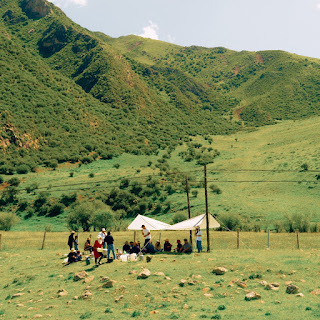The Republican Party, also known as the Grand Old Party (GOP), has long been recognized as the party of law and order, a champion of small government, and a strong advocate for fiscal conservatism. However, in recent times, the party has seen a dramatic shift in its ideological stance, with a self-proclaimed appointee emerging as a cult figure within the party.
This transformation has been marked by an increasing appeal to the party's base, often focusing on emotive and populist issues rather than traditional conservative principles. The new leadership style is characterized by charismatic authority and a personalistic approach, which has resonated with many within the party, leading to a surge in support from certain demographics.
However, this shift has also led to an increasing polarization within the party and the country as a whole. Many critics argue that this trend has resulted in a growing divide between the educated and less educated sections of the party, with the latter often being swayed by emotive rhetoric and populist appeal.
The sacredness of the vote, a cornerstone of democratic societies, has been brought into question in recent times. The right to vote and the integrity of the electoral process are essential elements of a functioning democracy. However, efforts to undermine this principle have led to concerns about the future of the democratic process.
This shift within the GOP raises important questions about the future direction of the party and its impact on American democracy. As the party continues to evolve, it remains to be seen how these changes will shape the political landscape and the ideals that the Republican Party stands for.
Further
The Republican Party-GOP has undergone a dramatic transformation in recent years. Once known as the party of law and order, it has now become a cult of personality led by former President Donald Trump.
Trump's rise to power has been fueled by a number of factors, including the growing influence of white nationalism and populism within the Republican Party. Trump's supporters are often drawn to his promises to "Make America Great Again" and his willingness to challenge the status quo. They also admire his strongman persona and his willingness to fight back against perceived enemies.
Trump's supporters are largely uninformed about the importance of the freedom of the vote. They have been misled by Trump's false claims that the 2020 election was stolen from him. As a result, they are willing to support Trump's efforts to overturn the results of the election and to restrict voting rights.
The transformation of the Republican Party into a cult of personality is a dangerous development for American democracy. Trump and his supporters are willing to undermine the rule of law and to restrict the freedom of the vote in order to maintain power. This poses a serious threat to the democratic institutions that have been the foundation of American society for centuries.
The Republican Party has been accused of becoming a cult of personality around former President Donald Trump. This is a serious accusation, and it is important to understand what it means.
A cult of personality is a social group that is characterized by unquestioning devotion to a single leader. The leader is often seen as infallible and all-knowing, and the group's members are willing to follow him or her blindly.
There are a number of factors that have contributed to the rise of a cult of personality around Trump within the Republican Party. These include:
* Trump's own personality: Trump is a charismatic and polarizing figure who has a cult of personality around him even outside of the Republican Party. He is known for his outlandish statements and his willingness to attack his enemies.
* The Republican Party's shift to the right: The Republican Party has been shifting to the right in recent years, and this has made it more appealing to voters who are looking for a strongman leader. Trump's policies and rhetoric have appealed to these voters, and he has become a symbol of the Republican Party's new direction.
* The media: The media has played a role in the rise of the Republican cult of personality around Trump. The media has given Trump a platform to spread his message, and it has often been critical of his opponents. This has helped to create a sense of persecution among Trump supporters, and it has made them more likely to rally around him.
The rise of a cult of personality around Trump is a dangerous development for American democracy. It is important to be aware of the signs of a cult of personality, and to be critical of any group that exhibits these signs. If the Republican Party continues to become a cult of personality around Trump, it will pose a serious threat to the democratic institutions of the United States.
Here are some of the signs of a cult of personality:
* The leader is seen as infallible and all-knowing.
* The leader is surrounded by a group of loyal followers who are willing to follow him or her blindly.
* The leader is often the subject of adulation and worship.
* The leader's words and actions are not questioned.
* The group's members are isolated from outside information and opinions.
* The group's members are often afraid to speak out against the leader.
If you see these signs in a group, it is important to be critical and to question the group's motives. It is also important to be aware of the dangers of cults of personality, and to be prepared to stand up to them.




No comments:
Post a Comment
Welcome to Leave a Comment